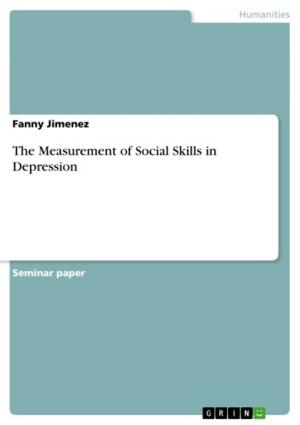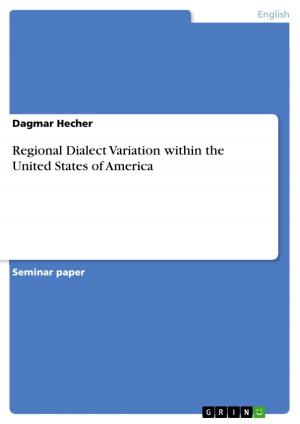| Author: | Fatma Torun | ISBN: | 9783638335492 |
| Publisher: | GRIN Publishing | Publication: | January 4, 2005 |
| Imprint: | GRIN Publishing | Language: | English |
| Author: | Fatma Torun |
| ISBN: | 9783638335492 |
| Publisher: | GRIN Publishing |
| Publication: | January 4, 2005 |
| Imprint: | GRIN Publishing |
| Language: | English |
Master's Thesis from the year 2003 in the subject Business economics - Personnel and Organisation, grade: good, University of East London (European College of Business and Management), 32 entries in the bibliography, language: English, abstract: In today's economy, companies are increasingly facing new challenges. High competition in a global market, shrinking corporate resources, rapid shifts in technology, and the recruitment and retention of talented and skilled people are just few of these challenges. The economy demands that people's knowledge and skill levels be constantly updated. A growing number of companies are developing a new learning culture. In the past companies have viewed training as a necessary expense rather than an investment. Emphasis was placed cutting on the expense of training by making it more efficient. Now, in response of these challenges, companies are beginning to view training as an investment. The knowledge and skills of the organisation's employees are now being held on equal basis with the company's monetary asset. Learning faster than other companies represents one of the most important competitive advantages.1 Here the Internet technology represents an unprecedented opportunity for training departments to add value to the organization. E-learning combines education, information, communication, training and knowledge management.2 It represents an all embracing and cost effective way of training staff. It can deliver on a global basis, while tailoring content to suit the needs of the individuals. It also allows an organization to regularly assess skills gaps. Its benefits have already been realised by a number of the world's leading companies who prepare their workforce with elearning. Some case studies will be described in this report.
Master's Thesis from the year 2003 in the subject Business economics - Personnel and Organisation, grade: good, University of East London (European College of Business and Management), 32 entries in the bibliography, language: English, abstract: In today's economy, companies are increasingly facing new challenges. High competition in a global market, shrinking corporate resources, rapid shifts in technology, and the recruitment and retention of talented and skilled people are just few of these challenges. The economy demands that people's knowledge and skill levels be constantly updated. A growing number of companies are developing a new learning culture. In the past companies have viewed training as a necessary expense rather than an investment. Emphasis was placed cutting on the expense of training by making it more efficient. Now, in response of these challenges, companies are beginning to view training as an investment. The knowledge and skills of the organisation's employees are now being held on equal basis with the company's monetary asset. Learning faster than other companies represents one of the most important competitive advantages.1 Here the Internet technology represents an unprecedented opportunity for training departments to add value to the organization. E-learning combines education, information, communication, training and knowledge management.2 It represents an all embracing and cost effective way of training staff. It can deliver on a global basis, while tailoring content to suit the needs of the individuals. It also allows an organization to regularly assess skills gaps. Its benefits have already been realised by a number of the world's leading companies who prepare their workforce with elearning. Some case studies will be described in this report.















